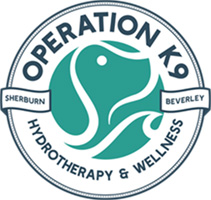It’s getting to that time of year again where we can expect to start experiencing the effects of fireworks on our dogs.
During the global pandemic, some owners may have used the opportunity of spending more time with their dog to start a desensitisation programme months ago. Unfortunately this is unlikely to be in the forefront of your mind 3-6 months ago when desensitisation should have started.
Around 45% of dogs are scared of fireworks so I hope you can get some useful advice from this article to help your pet have a better experience this year.
More at home displays?
There could be more at-home displays this year with people avoiding going to busy, organised events. This can become trickier to predict regarding timing and locality. Try reaching out to your neighbours and villagers to ask if they can let you know if they are having a display, and when to expect it to start and finish so you can be more prepared.
The Basics
Draw the curtains, close doors and windows and put the TV on louder than usual. Reggae and Classical music helps calm dogs down so set Alexa on with a playlist for the evening. Dogs look to you for your reaction to a potential risk. Try to not react and fuss around too much as this can worry a dog further. Be there to provide support and reassurance but be a calming influence.
Create a safe space
Dogs like to hide when feeling anxious. Make them an area of their own by covering over a dog crate, or draping a blanket between two sofas or under a table. A comfortable, dark space where they can choose to spend time. Set this up a few days before the expected event to get them used to it and encourage them to use it by giving a chew treat in there. It’s likely they will want to be close to you so preferably in the same room as you.
If you shut a dog into a cage or a room when they are feeling stressed they can hurt themselves if they panic and try to get out. Some dogs take themselves off and hide under the bed for example, if this is the case then leave them there if they feel safer.
Day time walks and escape routes
There is always an increase in lost dogs at fireworks time. Even the best trained dog can bolt when scared. Exercising your dog well during the day will help them settle better in the evening. Make sure microchip details are up to date and ensure your house and garden is secure to avoid a stressed dog escaping. Consider keeping them on a lead in the garden if you need to toilet them after dark. Otherwise avoid outside time after dark during the firework period.
Calming supplements, pheromones and medication
There is a variety of over the counter supplements available to help reduce stress and anxiety. Some work best when started months to weeks before the event, some can be given days and hours before. These can have a good effect, depending on the severity of the behavior, but it may be a case of trial and error to see what works best for your dog. If you know your dog will need the help of stronger short term medication for noise phobia, then contact your Vets in good time for a Veterinary prescription.
Enrichment and chew toys
Dogs can often loose their appetite when stressed so consider feeding them earlier in the day. Providing tasty long lasting chews and treats can be a great was to distract a stressed dog. For example snuffle mats, activity feeders, filled Kongs or a safe chew can keep their minds off the noises. Enrichment activities that promote licking and chewing encourage dopamine release in your dog’s brain offer a calming, tasty distraction during stressful events
Now may be the time to introduce a new exciting toy or play their favourite indoor game.
Noise phobias are treatable, but it takes time and commitment. Start planning for next year as soon as you can. A noise desensitisation programme can be used to gradually expose your dog to the sounds at a very low level while having positive experiences of food, praise etc. This is a gradual counter-conditioning process to help them accept the sounds long term. To get help with this contact a qualified animal behaviourist.
Free Desensitisation Programe click here
Rebecca Wilkinson RVN NCert (AnBeh)






